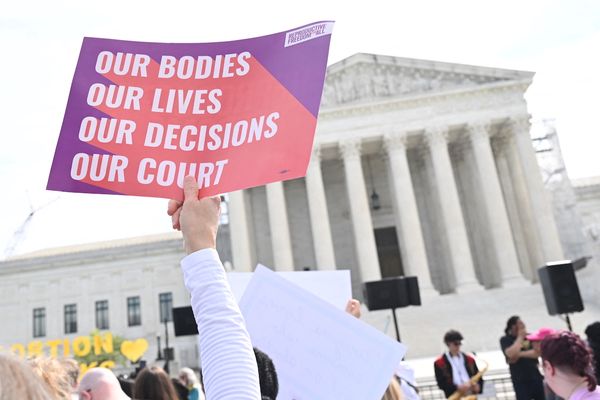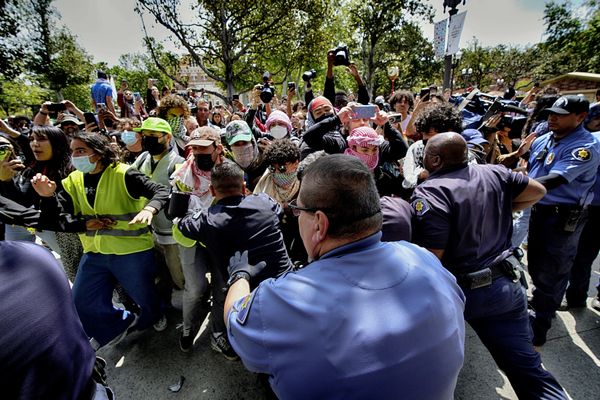
In 2003, Gonzalo Sánchez de Lozada, who was president of Bolivia, resigned. His unpopular economic and energy policies had led to a series of protests, which his government had tried to put down using the police and military. But public anger became too great to ignore when security forces killed dozens of Bolivians, and Lozada departed office in disgrace. The same story looked set to unfold again in 2005, with President Carlos Mesa facing a series of protests also linked to his economic and energy policies. Confronting tens of thousands of demonstrators, he resigned rather than order the security forces to use violence.
In 2019, just last weekend, Bolivia saw yet one more resignation: that of President Evo Morales, who left office after a series of protests over allegations that he had rigged general elections last month to remain in power. Morales did call in the security forces to repress the protests, but multiple police units joined in the uprising while the military made a statement the day before Morales’s resignation saying it would refuse to engage in repression. After two weeks of rallies, the head of the armed forces asked for Morales’s resignation.
The resignations in 2003, 2005, and 2019 were three incredibly complex situations involving protests, security forces, and governing institutions. However, the point remains that not a single popularly elected Bolivian president since 2002 has handed over power peacefully to an elected successor. This history—and the current tumultuous state of Bolivian politics—suggests that the next elected president will likely face protests and be forced to resign as well. That’s a pessimistic yet entirely possible scenario in the coming years.
Even before 2019, Morales had weathered numerous rounds of protests, some threatening to destabilize his government. He faced dissent from indigenous groups over land management, outrage from groups in eastern Bolivia over his government’s economic policies, and marches from groups in and around the capital that were disappointed by the failures of government services. He was rebuked by voters in a 2016 referendum, when they rejected his attempt to remove term limits. But then he used a court system stacked with loyalists to overturn the result, leading to more protests. The outpouring in recent weeks was a culmination of numerous groups turning against a president whom they viewed as overstaying his mandate.
Protests have continued since the president’s resignation and are likely to wear on for weeks to come. The recent election results, while likely to have been manipulated in some fashion, are consistent with preelection polling demonstrating that about 40 percent of the public continues to support Morales, Bolivia’s first indigenous president.
Many within Morales’s still considerable base believe that their votes were undermined, as Morales has described it, by a military coup that led to his resignation. Both pro-Morales and anti-Morales protesters have engaged in violence and vandalism, attacking political leaders and causing damage to their homes or businesses. This is a tense situation that requires delicate leadership—something Bolivia is unlikely to get given the political vacuum left by Morales and the coming power struggle to fill it.
If political polarization weren’t a big enough challenge, three other factors will make the job of the next president even more difficult: the role of the military, divisions within the anti-Morales coalition, and any continued efforts by Morales and his Movement for Socialism (MAS) party to undermine his opponents.
First, the next president will face a police force that joined with the protesters and a military that turned against its civilian commander and requested the resignation of government officials. Morales had wanted his security forces to show they supported his presidency and repress the protests. Either course of action would have come with problems, since armed forces are supposed to be apolitical. Bolivia’s situation is complicated by the fact that top military generals held a press conference suggesting the president resign, rather than deposing him outright. Academics and pundits may debate whether this constitutes a coup, but there is little doubt that the military’s suggestion goes against the norms and rules of civilian control over democratic institutions.
For that reason, the threat of potential military pressure will now hang over the next president. In the days following Morales’s resignation, the military and police have been patrolling and repressing protests with neither a president nor defense minister technically in charge. The next president will need to make sure the military respects the civilian chain of command and doesn’t continue to freelance security operations and unilaterally hold press conferences about political events.
Second, numerous politicians and social movements within the anti-Morales coalition are jockeying for positions of influence, including for the presidency. Mesa, the former president who ran as the consensus candidate against Morales in the last election, is a relatively uninspiring politician whose main draw is his ability to unite a diverse coalition against Morales. Even before Morales resigned, Luis Fernando Camacho, who organizes right-wing movements in Bolivia’s eastern provinces, had quickly pushed himself into a much more public position, taking some of the leadership role from Mesa. And Oscar Ortiz, who ran in the first round of the election before the contest came down to Mesa versus Morales, threatened to divide the opposition vote and still has aspirations for the top spot. In the past week, another conservative politician has entered the fray as Jeanine Áñez has made a claim to the interim presidency, taking up the spot on Tuesday night despite a lack of legislative quorum.
This group of Morales’s opponents leaves out numerous citizens who also opposed his continued presidency—some of whom were once longtime supporters. Although the former president was once popular with indigenous groups, the urban poor, and lower middle class, his standing waned in his final years in power. Many voters across Bolivia were willing to vote for Mesa as a consensus candidate, but some would likely prefer someone closer to Morales’s leftist political and economic policies—just not Morales himself. If politicians to the right of Mesa try to take more power within the interim government or run as leading candidates in the next election, voters to the center and left of the political spectrum will turn against them. That division between the center and right will hit the next president’s public approval rating and could cost a new government its ability to effectively govern in a coalition depending on the makeup of the legislature.
Finally, Bolivia’s next president has to worry about his or her lead political opponent: Morales himself. The former president views his resignation under duress as a coup and has already threatened to use his political influence to delegitimize any future government. Even from exile in Mexico, Morales will have the ability to lead his supporters and plan his eventual return to power as he works to shape public opinion against the interim president and the eventual elected successor.
In fact, Morales’s influence over the transition in the coming weeks is considerable. On top of the resignations of the president and vice president, a string of government ministers and vice ministers, members of the Legislative Assembly, and local government officials who are supportive of Morales have also left office over the past week and continue doing so as of this writing. Morales exercised a great deal of control over the other branches of government—the court system, the electoral institutions, and his party-controlled Legislative Assembly—and the pro-Morales officials may continue to follow the direction of the former president. As they depart government en masse or simply refuse to take part in usual government business, they impact the legitimacy and viability of any interim government.
In the short term, a fight has begun over the Legislative Assembly’s role in approving Morales’s resignation and naming an interim president. Anti-Morales politicians settled on Áñez, an opposition politician and the second vice president of the Senate, to take the interim president role. However, the Senate could not name her interim president without a quorum, which seemed impossible to reach given the high number of resignations and a promised boycott by the MAS. On Tuesday evening, she named herself interim president in spite of the quorum rules, leading to questions over the constitutionality of that appointment and bitter feelings from the MAS politicians who had hoped to use the issue as leverage in negotiations.
Áñez has promised that her priority will be restoring order in the country and holding new elections as soon as possible, possibly as early as December. With international pressure building, Áñez is certain to press forward with new elections. Unfortunately, the conditions of those elections will be yet another controversial battle over legitimacy and fairness in which Morales and the MAS will attempt to sway public opinion against the leading candidates. The next elected president very well may begin his or her term with a percentage of the population doubting the legitimacy of the presidency.
Bolivia’s next popularly elected president faces an uphill battle: Finish his or her term in office and hand power to an elected successor. Nobody has done it in two decades, and the odds are against it happening now. Morales’s successor will need to put aside personal ambition, make sure the military and police remain under civilian control, be willing to build a broad ideological coalition, and find a way to turn political opponents into responsible opposition parties.






